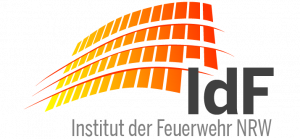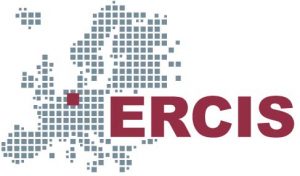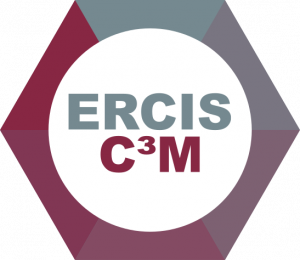This year’s ISCRAM conference includes a Project Research Symposium under the topic: “Fostering collaboration: bridging academia and practice through ongoing projects and opportunities for future research“. The project symposium is designed to foster interactions between academia and practitioners by showcasing funded research projects, both ongoing and completed, encouraging discussions about future research ideas and finding synergies.
The symposium will take place on Tuesday, May 28th, in the afternoon. It will feature up to ten presenters, each given 8 minutes to discuss their projects, results, methodologies, stakeholder involvement, and potential areas for future collaboration. Following the presentations, there will be a structured discussion session organized in a “world café style.” Presenters will be stationed at designated tables, with audience members rotating every 10 minutes, promoting dynamic interaction and the exchange of ideas.
The Symposium will be co-chaired by Dr. Chiara Fonio, Dr. Alexander Rösner, Dr. Monika Rode & Dr. Adam Widera. If you have any questions, please refer to iscram2024@ercis.org.

Dr. Chiara Fonio
Head of Social Innovation @ ICONS Innovation Strategies

Dr. Alexander Rösner
Project Coordinator @ ForAn / Federal Agency for Technical Relief (THW)
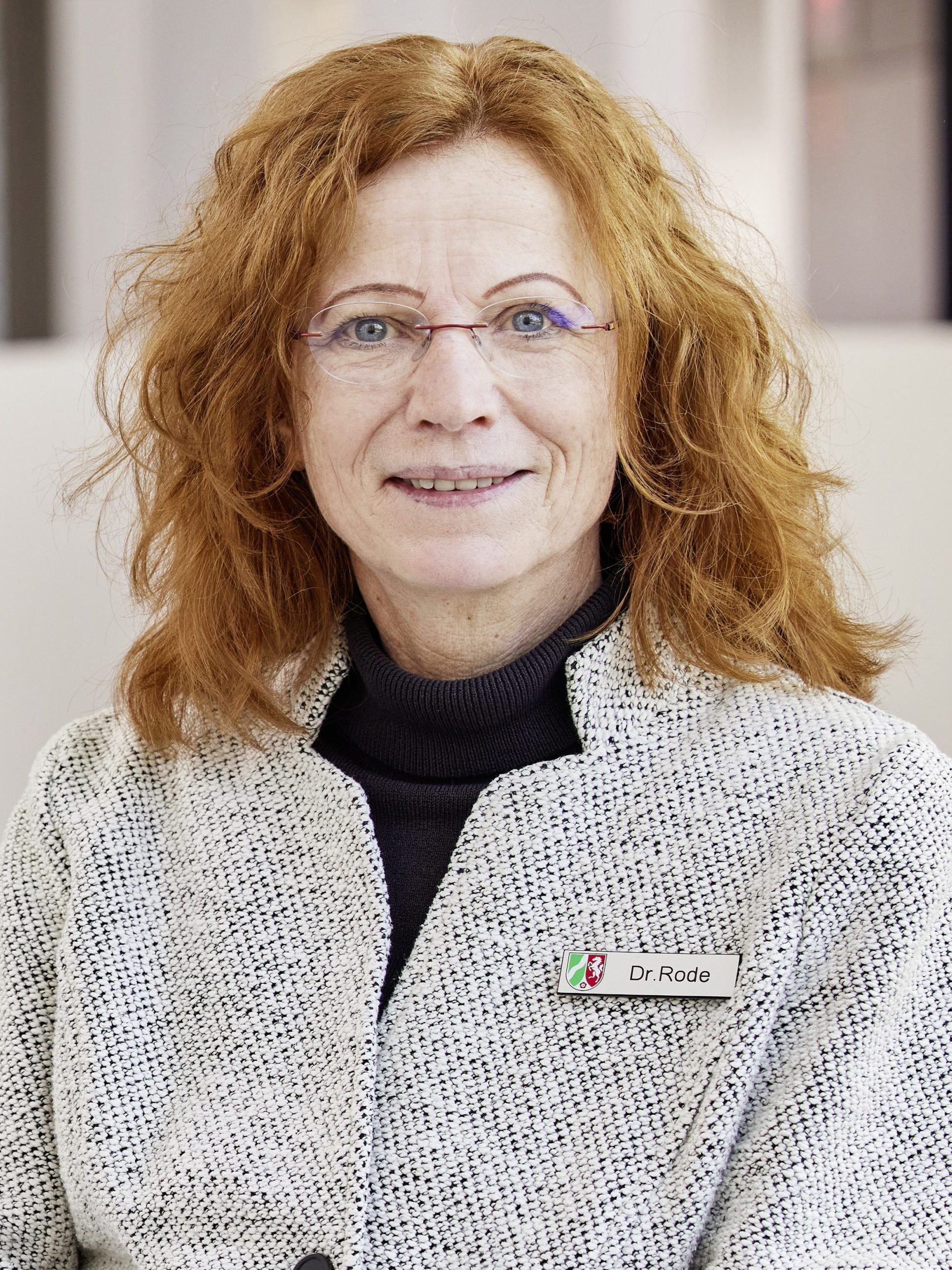
Dr. Monika Rode
State Fire Service Institute North Rhine-Westphalia (IdF)
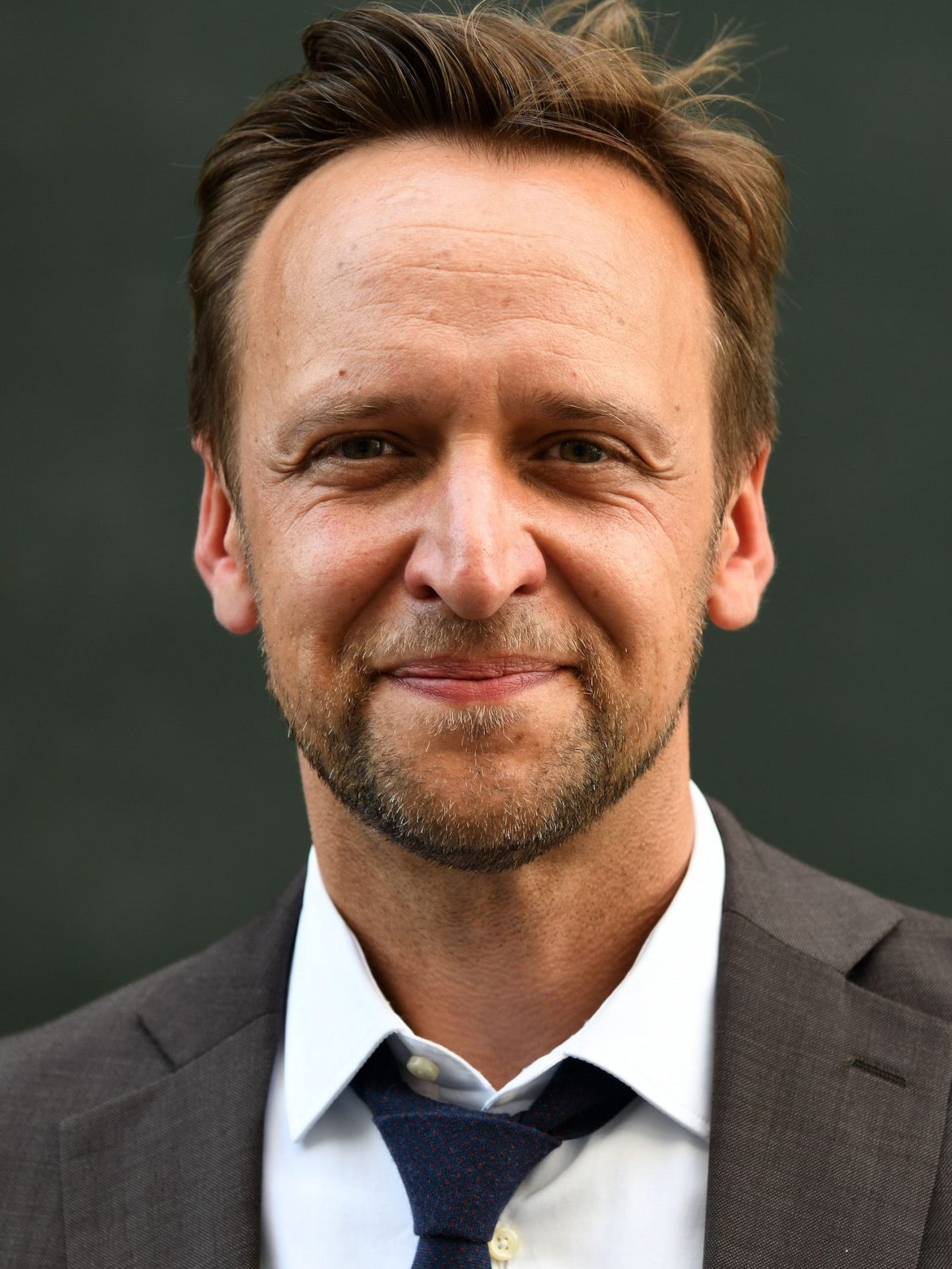
Dr. Adam Widera
Crisis Management Competence Centre (C³M)
PROJECT SYMPOSIUM PROJECTS
PROJECT DESCRIPTIONS
BeLife
Knowledge Transfer as the Foundation of Holistic Crisis Management in the BeLIFE Project
Description
The BeLIFE project, funded by the German Federal Ministry of Education and Research (BMBF), adopts a holistic approach to knowledge transfer, promoting crisis management as a continuous, proactive, and anticipatory process. BeLIFE began in October 2023 and will run for four years. It accompanies the second phase of five regional German projects, also funded by the BMBF, which are implementing solutions to prevalent issues in civil protection. These solutions respond to potential scenarios such as flooding, blackouts, and crowd panic. The five projects’ planned measures seek to heighten actors’ resilience and their ability to act, educate the population at large, and improve crisis planning and communication.
As the accompanying research project, BeLIFE addresses the demands of effective knowledge transfer on multiple levels and for various audiences: First, it creates an infrastructure designed to facilitate knowledge exchange between the five civil-protection projects, thus establishing an overarching knowledge space that enables each project to benefit from the others’ insights into central issues and challenges. Second, it adopts the meta-perspective of sociotechnical systems to analyze how the various social and technical components of crisis management in the five projects interact and what implications this has for future crisis management, both for facilitating dialogue between researchers and practitioners and for ensuring sustainable approaches to crises. Third, BeLIFE transfers this knowledge gained from both scholarship and practice to decisionmakers and to the general population: It provides immersive insights into potential crisis scenarios at the Futures Security Lab, located at the Einstein Center Digital Future across from the German Bundestag, and disseminates key learnings from the five projects in an interactive traveling exhibit.
Ultimately, the aims of BeLIFE speak to multiple symposium topics. The project emphasizes that effective knowledge transfer, by promoting exchange between the various actors involved in crisis scenarios, is a vital aspect of the crisis management lifecycle. Moreover, it takes a holistic view of this lifecycle, demonstrating the necessary links between anticipatory planning, proactive response, and critical reflection.
The meta-perspective of sociotechnical systems as an interdisciplinary basis for knowledge transfer also prompts further avenues of inquiry. Future projects could examine how the various dimensions of knowledge transfer can help to anticipate and address challenges that arise when technical innovations encounter social needs and expectations. Such projects could focus, for instance, on how to optimize knowledge transfer between diverse actors to promote a nuanced, transparent, and responsible use of artificial intelligence in civil protection.
CREXDATA
Critical Action Planning over Extreme-Scale Data
Description
Emergency management and critical action planning call for timely and accurate decision making in several, diverse applications with the goal to optimize economic, societal, or environmental impacts. Weather and health emergencies and maritime applications collect live streams of extreme scale data that reach high speeds and volumes and possess highly volatile statistical properties, incorporating uncertainties and diverse modalities through a multitude of sources. The vision of CREXDATA ( https://crexdata.eu/) is to develop a generic platform for real-time critical situation management including flexible action planning and agile decision making over data of extreme scale and complexity. To achieve its vision, CREXDATA will develop a next generation Prediction-as-a-Service (PaaS) system where action planners will easily register their multimodal data stream sources and compute resource federations and graphically design predictive analytics workflows. The project will develop the algorithmic apparatus, software architectures and tools for federated predictive analytics and forecasting under uncertainty.
The purpose of the envisioned framework is to boost proactive decision making providing highly accurate and transparent short- and long-term forecasts, explainable via advanced visual analytics and accurate, real-time, augmented reality facilities. Three use cases will be used to evaluate project results: enabling authorities and first responders to act proactively in the event of weather-induced emergencies, predicting hazardous situations like potential vessel collisions at sea, and mitigating pandemic outbreaks and developing non-pharmaceutical means of treating patients. Collaborative experience will strengthen the CREXDATA project, involving 15 institutions with emergency management stakeholders in Germany, Austria and Finland. The consortium builds upon results of preceding projects like ANYWHERE, enabling impact assessments in extreme weather situation based on Multi-Hazard Early Warning System. Data from the meteorology domain like weather sensor data, nowcasts and forecasts is integrated with local data streamed from stationary and mobile sensor systems like rescue robotics.
The CREXDATA consortium will contribute knowledge along the entire chain from data processing across such extreme data up to visualization of actionable information subsuming explicit notions of uncertainty. Use case range from map-based decision support views for high level command posts to Augmented Reality tools for tactical commanders in the field. The CREXDATA architecture will incorporate ten exploitable assets based on cutting edge research, which will significantly outperform the current state of practice in respective fields. The CREXDATA project works within the greater ecosystem of HORIZON EUROPE projects that contribute to the Digital Europe Programme.
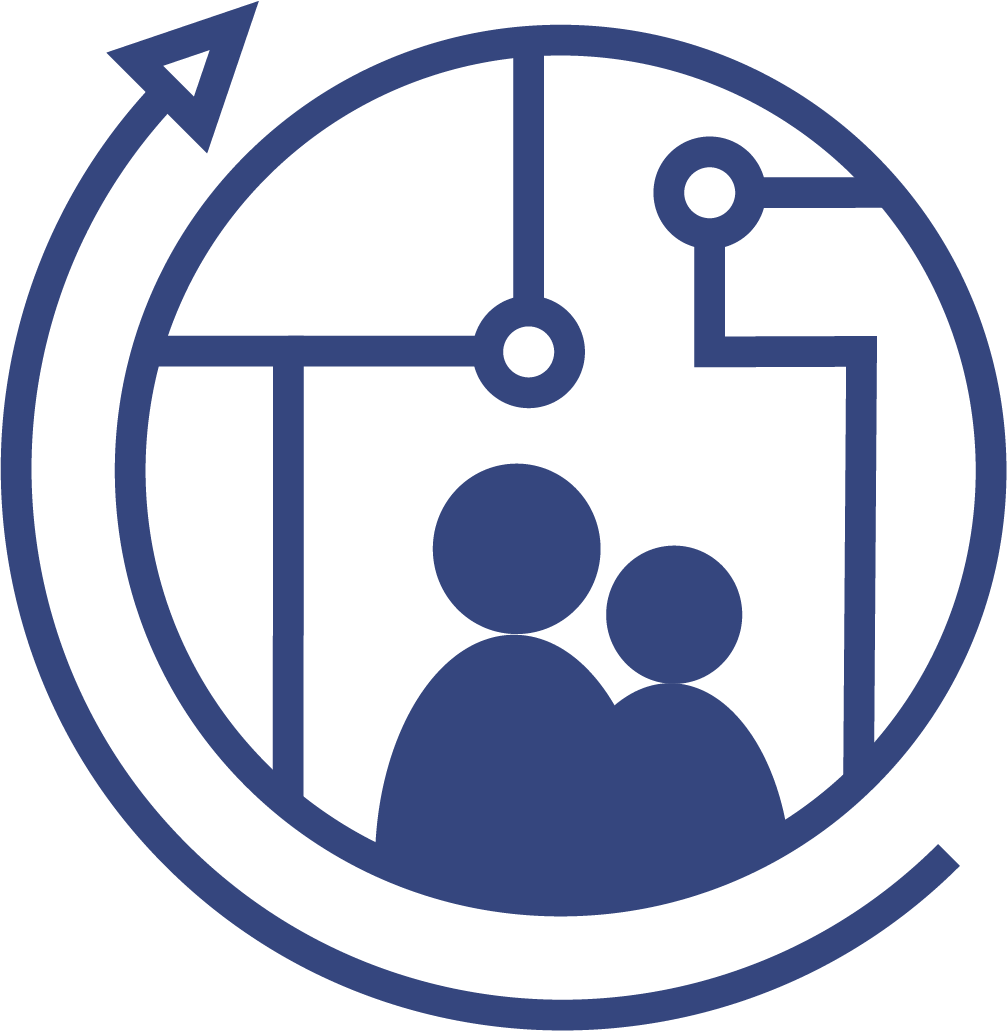
DigCBA
Digital Cash Based Assistance
Description
DigCBA contributes to the responsible use of digital cash-based assistance (CBA) in refugee crisis through the design, development and evaluation of evidence-based frameworks to support policy makers with the selection and use of the most suitable digital technology for delivering CBA to refugees. Digital technology, including mobile money, electronic vouchers, electronic cash, and recently blockchain-based transfers, is transforming CBA with the potential to increase access to financial resources and services during times of crisis while increasing the effectiveness and efficiency of assistance. While academic research on technology aspects of CBA is rare, the growing interest on CBA in practice has stimulated the need among CBA actors to explore using digital technology where FEASIBLE in terms of (i) contextual characteristics (e.g. data infrastructure conditions in target locations) and refugees’ preference, technology access and digital literacy; and (ii) the relative readiness and acceptance of main CBA actors to adopt, implement and use the technology in target locations. The responsible use of digital CBA entails ensuring policy makers at humanitarian organizations (HOs), non-governmental organizations (NGOs), and donors make informed decisions about the use of digital technology in CBA while accounting for the contextual characteristics of the target community, and the technology readiness of involved actors. Specifically, the project takes a stakeholder-centred approach addressing the needs of beneficiaries, HOs, international and local NGOs, donors, and business partners. The project is coordinated by the University of Agder (Norway), in collaboration with NTNU, Hanken School of Economics, University Münster/ERCIS Competence Center for Crisis Management (Germany), and Makerere University Business School (Uganda). A reference group of CBA actors secures close interaction with policy makers targeted by DigCBA. The project consists of an interdisciplinary team of humanitarian operations researchers with focus on ICT, supply chain management, information systems and organization studies.

DIREKTION
Disaster Resilience Knowledge Network
Description
The increasing frequency and severity of global crises, from natural disasters exacerbated by climate change to the multifaceted challenges posed by rapid technological advancements and societal shifts, necessitates a paradigm shift in disaster response and management strategies. The DIREKTION project, launched as part of the European Union’s Horizon Europe initiative under the specific call HORIZON-CL3-2022-SSRI-01, aims to improve public safety and resilience against disasters. It does so by combining advanced technologies and new strategies to better manage emergencies and protect communities. DIREKTION seeks to address the critical need for an adaptive, resilient, and efficient crisis management framework that can navigate the complexities of modern disasters. It emphasizes the development of a comprehensive system that leverages the latest in research and technology while fostering collaboration across disciplines and sectors. This project underscores the potential of interdisciplinary efforts to create solutions that are not only technologically advanced but also inclusive and sustainable. This abstract outlines DIREKTION’s core objectives: to harness and integrate cutting-edge technologies and methodologies to improve crisis prediction, management, and recovery processes. The project aims to innovate in areas such as real-time data analytics, communication technologies, and decision-support systems, ensuring that responses to crises are more coordinated, timely, and effective. Furthermore, DIREKTION places a significant emphasis on environmental sustainability and social responsibility, aiming to develop solutions that mitigate the impacts of disasters on communities while promoting resilience and adaptation. The methodology encompasses a blend of quantitative and qualitative research approaches,including case studies, simulations, and participatory design workshops, to ensure that the solutions developed are grounded in real-world needs and scenarios. This comprehensive approach ensures that DIREKTION’s outcomes are not only theoretically sound but also practically viable and adaptable to various contexts and challenges. Anticipated outcomes of the DIREKTION project include the development of a frameworkfor capability-driven innovation management, enhanced tools for situational awareness, and innovative strategies for community engagement and resilience building. By bridging the gap between technological innovation and societal needs, DIREKTION aims to contributing to safer, more resilient societies. In conclusion, the DIREKTION project represents a critical step forward in the quest for more effective, efficient, and equitable disaster management solutions. By aligning with Horizon Europe’s vision for civil security and societal resilience, DIREKTION not only addresses the immediate challenges posed by modern crises but also lays the groundwork for future innovations in the field.

iProcureSecurity
Pre-Commercial Procurement of Innovative Triage Management Systems Strengthening Resilience and Interoperability of Emergency Medical Services
Description
Emergency Medical Services (EMS) in Europe are characterized by a heterogeneous landscape with diverse organizational setups, technology standards, coordination mechanisms and actors. This is the result of different historical and institutional contexts. However, these EMS are united by the common aim of providing timely care to casualties of sudden and life-threatening emergencies or disasters in cross-border settings and international humanitarian missions. Fostering the response capacities and increasing the cooperation of the Emergency Medical Services Systems is of decisive importance for strengthening the resilience of European societies.
During the prior iProcureSecurity Coordination and Support Action (CSA) project, many EMS were involved to identify, evaluate, and prioritize future challenges and needs. The creation of an interoperable, flexible triage management system supported by modern technologies was among the most requested solutions in the context of security-related scenarios.
This iProcureSecurity Pre-Commercial Procurement (PCP) project is a result of those intense participatory processes. The action will lead to an innovative triage management system that supports the EMS on the field in the management of the Mass Casualty Incidents (MCIs). The envisaged solution will be extremely flexible and interoperable, to adapt to the different procurers’ needs.
Overall, the iProcureSecurity PCP Solution aims to: (a) Fully digitalize the triage management operations on the field and provide guidance and support to the EMS practitioners; (b) Facilitate the communication and the information sharing among EMS on the field and external stakeholders. (c) Facilitate the decision-making process of the actors involved, by proving them with key information in real time, as well as with alerting and notification systems.
Following the EC Guidelines on PCP, through a competitive series of design, prototype and pilot steps, the iProcureSecurity PCP will contract suppliers to deliver the creation and deployment of the envisaged triage management system.

LINKS
Description
Decades of research and experience have demonstrated the positive impacts of an all-of-society approach for involving members of the population in disaster risk management (DRM). In recent years, EU funding calls (e.g. H2020 and Horizon Europe) and projects for research into societal resilience, have also placed increasing emphasis on the importance of inclusive engagement with different stakeholders in DRM, including formal authorities and response organisations, businesses and private actors, and (spontaneous) volunteers and citizens, and researchers. Such broad-based participation from society requires rethinking of organisational routines and processes in crisis management, as well as innovative approaches for communication and engagement with citizens including the most vulnerable. It requires time, trust, and finding new ways to dialogue between stakeholders, both in researcher and practice.
This pitch focus on the experience and outcomes from the H2020 project LINKS, which concluded in 2023. The project examined the ways in which social media and crowdsourcing could be used to enhance DRM efforts in various hazardous environments. Overall, the project produced valuable lessons learned for involving and collaborating with crisis management practitioners (and other stakeholders) in research, including concrete examples of exploitation and impact of project outcomes on practitioner organisations. The pitch will also discuss how the project outcomes fed into ongoing initiatives between researchers and practitioners in projects such as the Horizon project SYNERGIES, and provide some suggestions for strengthening future research collaborations between these stakeholders.

RESCUE-MATE (1)
New approaches to dynamic situational awareness and emergency responders support
Description
Storm surges are a natural hazard that is expected to increase in frequency and severity in the coming decades due to climate change. The RESCUE-MATE project, which is funded by the Federal Ministry of Education and Research, will address the scenario of a storm surge in Hamburg with a water level exceeding 7 meters above sea level. This could result in flooding of large parts of the port and districts close to it. All available relevant data sources must be integrated when dealing with severe storm surges due to the limited information typically available. This includes all data collected by emergency services via control centers and on site, data from sensors on site such as traffic cameras, terminal cameras, and environmental sensors, as well as all relevant information from existing systems. Additionally, information from citizens on social networks may also be considered. By collecting all of this information, it is possible to make a comprehensive assessment of the situation and derive more efficient and effective assistance. The project aims to automate, accelerate, and enrich the flow of information between authorities, emergency services, and aid organizations. Additionally, it aims to automatically collect and evaluate relevant information for assessing the situation and process it for different target groups. The project aims to develop an open, decentralized, and secure AI and data platform for situation and decision support. The platform will enable effective information exchange and generate digital twins as images of the situation on the ground, without replacing existing systems. The platform integrates public data sources and new sensor technology developed in the project, making them available to the different stakeholders.
The project addresses especially, but not only, the ISCRAM topics AI in Crisis Management and Risk and Crisis Communication. The AI-powered RESCUE-MATE system analyses available data to provide first responders with relevant, summarized information and prevent them from being overwhelmed by data. The exchange of data between organizations involved in disaster response is one of the platform’s main objective.
RESCUE-MATE is set to conclude in 2027. However, further research is required to investigate short-term simulations of hazardous events and their impacts. By providing probable scenarios, emergency responder organizations can take necessary anticipatory measures, such as issuing evacuation orders and constructing flood barriers

RESCUE-MATE (2)
Digital Twins and Analytical Modeling for Crisis Management: Enhancing Situation Awareness in Urban Environments
Description
As the impacts of climate change intensify, cities like Hamburg face increasing risks from natural disasters such as storm surges. In response, the RESCUE-MATE project, conducted within the Digital City Science (DCS) chair at HafenCity University Hamburg (HCU), integrates cutting-edge technologies, particularly Digital Twins in the Urban Space and Analytical Modeling and Simulation, to enhance crisis management strategies.
Digital Twins offer a revolutionary approach to understanding and responding to urban crises. By creating virtual replicas of physical environments, Digital Twins enable real-time monitoring, analysis, and prediction of crisis scenarios. In the context of RESCUE-MATE, Digital Twins serve as dynamic representations of vulnerable areas, infrastructure, and population density, facilitating proactive decision-making and resource allocation.
Analytical Modeling and Simulation further augment crisis management capabilities by providing insights into the potential impacts of various scenarios. Leveraging advanced algorithms and data analytics techniques, analytical models can simulate the behavior of complex systems under different conditions, allowing authorities to anticipate outcomes and plan accordingly. In RESCUE-MATE, these models enable authorities to assess the effectiveness of evacuation plans, infrastructure resilience, and resource distribution strategies, ultimately enhancing preparedness and response efforts and they can gain unprecedented insights into crisis scenarios, enabling proactive and effective responses to mitigate risks and protect lives and infrastructure.
At the conference, we propose to present the findings and methodologies developed within RESCUE-MATE Project in DSC, focusing on the role of Digital Twins and Analytical Modeling in urban crisis management. We will demonstrate how these technologies enable authorities to visualize, analyze, and simulate crisis scenarios, providing valuable insights for decision-makers and first responders and showcasing case studies and real-world examples from the RESCUE-MATE project.
Additionally, we will discuss the challenges and opportunities associated with implementing these technologies, as well as future directions for research and development in the field of urban crisis management.
In summary, our conference proposal seeks to showcase the transformative potential of Digital Twins and Analytical Modeling in enhancing situation awareness and crisis response capabilities in urban environments conducted within the Digital City Science chair at HCU. We look forward to sharing our insights and collaborating with fellow researchers and practitioners in the field.

SUNRISE
Strategies and Technologies for Resilient CIs in Europe
Description
European societies and economies depend on the reliable provision of vital services. Such vital services are delivered through Critical Infrastructures (CIs) which include basic supply networks (water, electricity), networks of information and communication services, social services (e.g., care of children or elderly), as well as complex networks of essential supply to the population (e.g., medical supply, food supply). This means that European CIs must be resilient, i.e., able to accommodate constantly changing risks and recover quickly from expected or unexpected disruptions. However, infrastructure systems and their components are interdependent. If a disruption or failure occurs in one system, it can spread to other systems and subsequently amplify the impact of a disruption many times and impact further systems.
The COVID-19 pandemic has highlighted the importance of the continuity of these vital services and has shown the need to work together for the common good. It has proven that a pandemic is not only a health crisis that disrupts CIs but underlines the extremely important link between the resilience of these CIs and our societies. The economic crisis caused by the pandemic also provides a unique opportunity to jointly ‘build back better’ with the focus on sustainability and green recovery.
In this context, the SUNRISE project facilitates active collaboration of CIs across Europe to share best practices and jointly tackle future pandemics. Therefore, SUNRISE aims to identify pandemic-specific vital services and CIs, their dependencies, risks, cascading effects, and effective measures to tackle them at European level. This will be done by developing a comprehensive strategy for ensure the availability, security, robustness and resilience of European CIs. Further, four innovative tools are developed that include solutions for risk-based access control, resource demand prediction and management, cyber-physical resilience, and remote infrastructure inspection to improve trustworthiness, cost-effectiveness, climate-friendliness, and continuity of pandemic-specific vital services in Europe.
SUNRISE pilots the results in operational environments of the CIs while tackling some of their biggest pain points exposed by the current pandemic, promoting the approach across Europe to ensure a united front and future resilience of CIs. Overall, the SUNRISE project carefully considers legal, ethical, societal, economic, and climate aspects, ensuring that the results address not only the needs of the CIs, but also those of our society.
SUNRISE has a special focus on pandemics, but the general approaches and strategies developed in the project could also be transferred to and applied in other domains. For example, when looking at natural and technological (NaTech) disasters, it would also be necessary to integrate different points of view into one assessment and to explicitly take into account their cascading effects. With todays’ interlinked and thus highly sensitive supply chains, the direct and indirect effects of such a disaster on society and social life are also an important part that needs to be considered.

